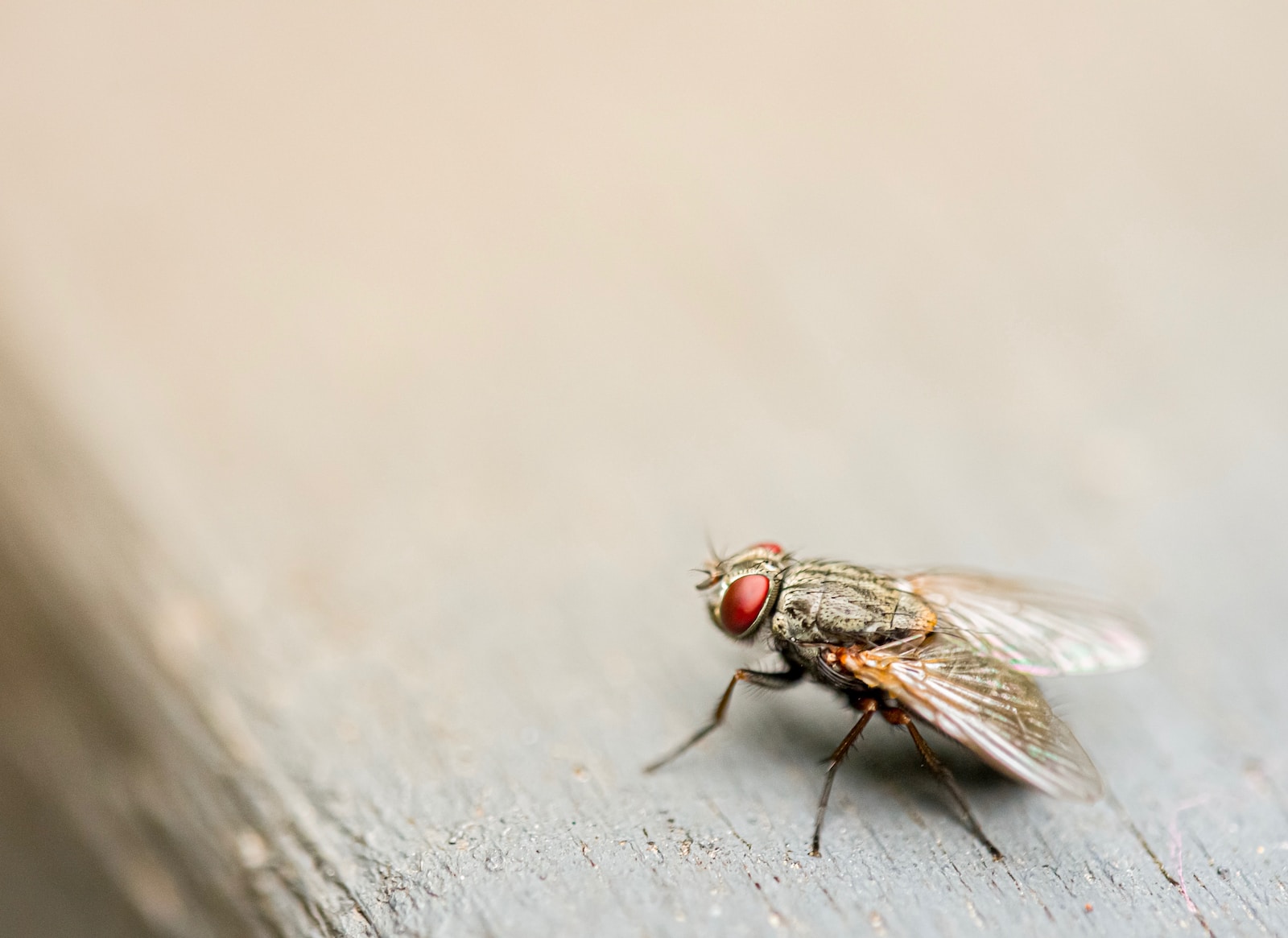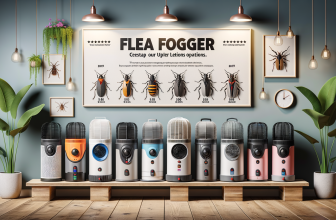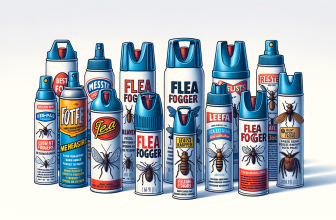
Are you tired of the incessant buzzing and the futile swatting that comes along with fly season? Whether you’re trying to enjoy a peaceful moment on your porch, preparing food in your kitchen, or tending to your garden, flies can be an unwavering nuisance. But don’t let these pesky insects dampen your spirits. The good news is that the market offers a plethora of effective fly repellent options to keep these uninvited guests at bay. But with so many products claiming to be the “best,” how can you be sure you’re making the right choice for your needs?
Our Top Picks
Our #1 Top Pick: Sawyer Products 20% Picaridin Insect Repellent
Sawyer Products 20% Picaridin Insect Repellent stands out for its efficacy and long-lasting protection against flies and other biting insects. What makes Picaridin-based repellents shine is their proven track record in repelling a wide variety of insects without the harsh scent or skin irritation sometimes associated with DEET. This particular repellent boasts up to 12 hours of protection, is safe for use on clothing and gear, and is suitable for the whole family.
Pick #2: Thermacell Patio Shield Mosquito Repellent
If you’re looking for a DEET-free, mess-free, and flame-free option, the Thermacell Patio Shield Mosquito Repellent is your ally against flies. This compact device uses heat-activated repellent mats that create a 15-foot protection zone. It’s perfect for outdoor gatherings—simply set it on a flat surface and enjoy a fly-free environment. Plus, its stylish design means it won’t be an eyesore on your patio table.
Pick #3: RESCUE! Outdoor Disposable Fly Trap
For those who favor a non-toxic, environmentally friendly approach, RESCUE! Outdoor Disposable Fly Trap is a budget-friendly option that effectively lures in and traps flies. The attractant included is powerful and made from natural ingredients, ensuring that you’re not adding harmful chemicals to your outdoor space. It’s easy to set up and once full, can be disposed of hassle-free, making it a convenient choice for busy individuals.
Pick #4: Bug Ball Starter Kit Yellow Fly, Horse Fly Repellent
For a different and innovative physical approach to fly control, consider the Bug Ball Starter Kit. This clever product entices flies with its bright yellow color and traps them using a special eco-friendly, non-toxic adhesive. Designed specifically to target biting flies like yellow flies and horse flies, it’s an excellent choice for those managing larger outdoor spaces such as farms or barns. As a bonus, it also deters wasps and hornets.
Pick #5: Zevo Fly, Fruit Fly, Gnat & Flying Insect Killer & Repellent Spray
Zevo’s Instant Action Spray tackles a variety of flying insects using ingredients inspired by nature’s insect defense mechanisms. Its combination of essential oils targets nervous system receptors vital to insects, not people or pets. This makes it a fantastic option for fly problems indoors, where traditional repellents might not be as desirable due to their odor or application methods.
What to Know Before You Buy
When choosing a fly repellent, it’s paramount to understand your particular needs and the environments in which you’ll use the product. Here are some points to ponder:
- Environment: Consider whether you need indoor or outdoor protection. Some products are designed specifically for one or the other, while others can be used in both settings.
- Formulation: Repellents come in sprays, lotions, wearable devices, and even as consumable bait for traps. The nature of your fly problem may dictate which is most suitable.
- Active Ingredients: Common active ingredients include DEET, Picaridin, and natural alternatives like citronella and essential oils. Each comes with its own set of pros and cons related to efficacy, safety, and smell.
- Duration of Protection: Consider how long you’ll need protection. While some products offer all-day relief, others might require reapplication more frequently.
- Pet and Child Safety: If you have pets or children, it’s crucial to choose a product that is non-toxic and safe around them.
Factors to Consider Before Buying
- Efficacy: A repellent’s effectiveness against various types of flies is arguably the most crucial aspect. Look for proven ingredients that target the specific species infesting your area.
- Safety: Always review the safety profile of the product, considering any potential skin irritations or respiratory issues, particularly for sensitive individuals or those with allergies.
- Application Method: Are you comfortable applying a lotion or would you prefer a no-touch option? Your personal preference can significantly influence your choice.
- Portability: If you require protection on the go, portable and compact options may be the best fit for you.
- Environmental Impact: Some individuals prioritize eco-friendly products. Fortunately, there are options on the market that are biodegradable and free from harmful chemicals.
Why Trust ChooseRight?
Here at ChooseRight, we understand the importance of making informed purchasing decisions when it comes to your comfort and health. Our reviews are the culmination of extensive research—we’ve combed through thousands of customer reviews, consulted with professionals, and examined scientific data to ensure we recommend only products that stand out in the market for their effectiveness and value. Trust us to guide you to the best fly repellent solutions that have proven their worth in real-world scenarios.
Finishing Thoughts
Dealing with flies doesn’t have to be a headache. By arming yourself with the right information and choosing a suitable fly repellent from our top picks, you can reclaim your space and enjoy your daily activities without interference from these flying pests. Remember, the best fly repellent is one that not only effectively repels these insects but also fits within your lifestyle, aligning with your values and needs.
Frequently Asked Questions
What are the most effective ingredients in fly repellents?
Effective ingredients in fly repellents often include DEET, picaridin, IR3535, oil of lemon eucalyptus (OLE), and permethrin for clothing. Natural alternatives such as citronella, eucalyptus, and peppermint oil can also be somewhat effective.
How often should I reapply fly repellent?
The frequency of application can vary depending on the active ingredient and the product’s formulation. Always check the label for specific instructions, but generally, repellents require reapplication every 4-6 hours.
Are there any natural fly repellent options?
Yes, there are natural options like citronella, eucalyptus, peppermint oils, and vinegar. These might be less effective or require more frequent application compared to chemical repellents.
Can I use fly repellent on my pets?
You should never use human fly repellent on pets without checking with a veterinarian first. There are specific pet-safe repellents available on the market designed for animals.
Is fly repellent safe for children?
Many fly repellents are safe for use on children, but it is essential to always read the label for age restrictions. Products containing DEET or picaridin are often suitable for children older than 2 months, but it’s best to consult with a healthcare provider for advice.
How do I apply fly repellent properly?
Apply fly repellent to exposed skin and clothing, avoiding eyes and mouth. For face application, spray on hands first and then rub onto the face, avoiding the eyes and mouth. Follow the product’s instructions for the best results.
Can I use fly repellent indoors?
Most repellents are intended for outdoor use. However, some products may be suitable for indoor use – check the label for specific instructions. Always ensure proper ventilation when using products indoors.
Do fly repellents work against all types of flies?
No fly repellent can guarantee effectiveness against all types of flies, but many are capable of repelling common types such as houseflies, horse flies, and fruit flies to a certain extent.
Can I make my own fly repellent?
Yes, you can make your own fly repellent using ingredients like essential oils, vinegar, and other household items. However, their effectiveness may not match that of commercially prepared repellents.
Are there any health risks associated with using fly repellents?
When used as directed, fly repellents are generally safe. However, overuse or misuse can lead to health risks, including skin irritations and allergic reactions. Always follow the manufacturer’s directions and consult with a healthcare provider if you have concerns.







